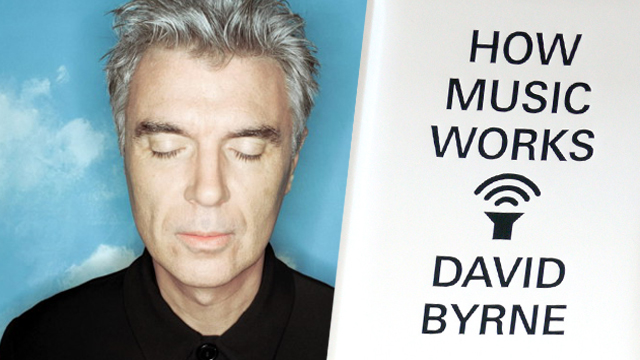
"How Music Works is a brainy, irresistible adventure and an impassioned argument about music's liberating, life-affirming power."
That’s a quote from the publisher, those rascally kids over at McSweeney’s. Now, you may ask yourself, does it accord with the approximately one hundred pages I’ve managed to read (and the many others I’ve skimmed over) today? Yes and no. No, because “a brainy, irresistible adventure” is a descriptor I expect to find on the back of a novel for young adults (or “teenagers”, as they used to be called). Yes, because this is an incredibly smart read, full of musical theory, history, ephemera, and well-reasoned philosophical arguments. Byrne deftly delineates the way music is affected by place, time, finance, interpersonal relationships and technology. He then goes on to explain how each factor works to alter the way we experience songs, and closes the circle by showing how listeners impact both musical progress and the musicians themselves. His exploration of performance, religion and socio-cultural conventions deserves close attention, as does his account of how his seminal New Wave band, the Talking Heads, originated and evolved.

Byrne, The Sartorialist
Though Byrne maintains How Music Works is not a Heads memoir, it is, at least in part, a fantastic, anecdotal glimpse into how the band and its groundbreaking sound came to be. Never mind that he details the theatrical strategy of the band’s early days (“W]e took reductionism pretty damn far…no rock moves or poses, no pomp or drama, no rock hair, no rock lights…no rehearsed stage patter…and no singing like a black man”), but he punctuates his recollection with a discourse on what they were wearing at the time: “[o]f course, back then the fact that we were (sometimes) wearing polo shirts both set us apart and branded us as preppies.”
The sartorial element of performance seems to figure large with Byrne, and he uses it, to a degree, to chart the progression of his career in music. I don’t think I will ever look at the Heads’ concert film Stop Making Sense in the same way again, all thanks to the long and involved rationale behind that damn gray suit.
But that’s okay. I like a man who can talk cloth. And Balkan folk music. Oh—and Brian Eno.
Byrne goes on in the other sections to cover royalty deals, music programs in the schools, his personal approach to working collaboratively and lyrically (very interesting, that), iTunes and so much more. I must say, I’m looking very forward to getting the chance to paw through the rest of the pages. My cuddle time with the book will have to wait, however, as POP Montreal is in full effect this weekend, and I plan to put in some real, quality face time with Mr. Byrne. I wonder what he’ll wear to his talk with Win Butler of Arcade Fire on Saturday. Will they coordinate? Oh, the mind reels.
How Music Works
By David Byrne
Published by McSweeney’s | mcsweeneys.net
David Byrne in conversation with Win Butler: How Music Works
Saturday, September 22 at 8 p.m.
Ukrainian Federation | 5213 Hutchison | popmontreal.com
A co-presentation of Librairie Drawn & Quarterly and Pop Montreal’s Symposium